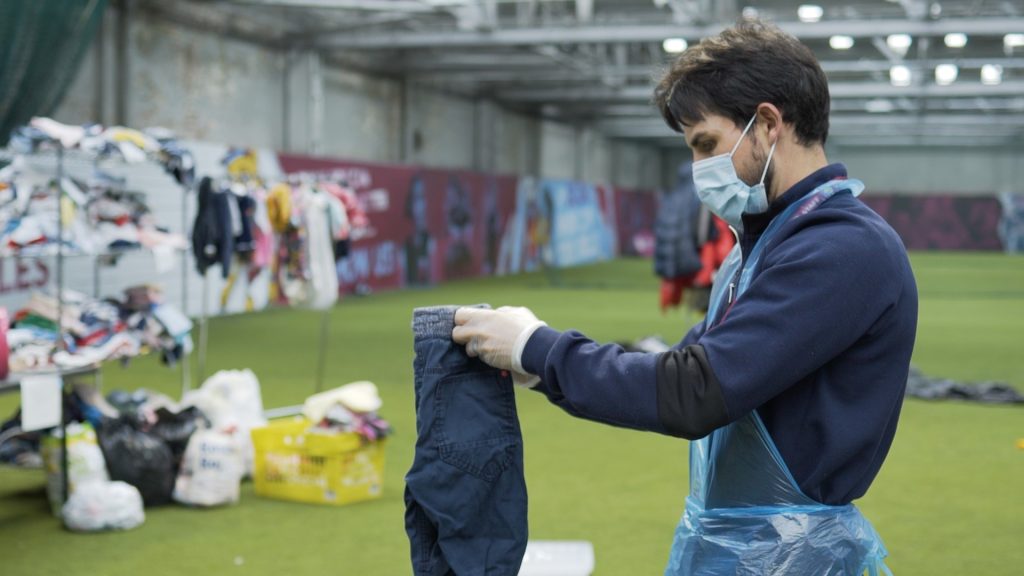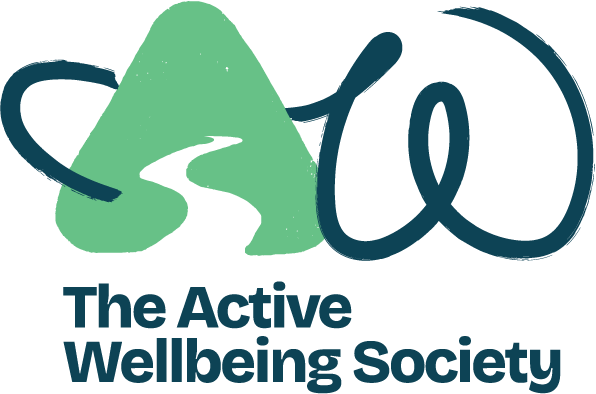During Covid-19, we have seen lots of examples of sharing within communities. People have been willing to donate food, share tools and volunteer their time. Local community WhatsApp groups, posters offering support, and mutual aid groups have sprung up to check in with neighbours and arrange donations and deliveries of essential supplies, such as prescriptions and food. There has also been a huge surge in people signing up to volunteer.
Sharing underpins our values, many of our projects, and the #BrumTogether network of partners. Here are some recent examples of our sharing initiatives:
Active Street Share:
The Street Share project encourages neighbours to collect donations of essential supplies on their streets which are then distributed across the city by the #BrumTogether network.
Volunteer Rachael Tratt has been working with Street Share to distribute empty boxes on local streets and within blocks of flats to collect donations, ‘It’s amazing to see how a little bit of help, with things like street donations, supports big collective actions.’
Street Share helps neighbours to check-in with each other, arrange informal support networks, build a greater sense of community, as well as support the citywide food distribution effort.
FeedBirmingham:
FeedBirmingham is a campaign we are working on with Thrive Together Birmingham, The Real Junk Food Project and local foodbanks to coordinate local support, donations, and deliveries. Local people become ‘food champions’ who inspire and arrange food collections and deliver donations.
It’s a brilliant example of informal networks providing incredible support across the city.
Wear and Share:
Wear and Share is a new initiative set up by TAWS and the Aston Villa Foundation to collect, sort, and redistribute clothes to individuals and organisations who are in need. Aston Villa have provided enormous facilities for storing and sorting clothes, and a network of organisations are working to identity need and deliver the supplies.
This project meets an urgent demand for clothing and in the process has shown how we can work together to share, reuse, and redistribute items that may have ended up in the bin.
The Neighbourhood Engagement Officer at the Aston Villa Foundation explained that they are trying to use everything they receive, ‘if something needs new buttons or needs to be repaired, we put it aside to be fixed.’ In the future, we also hope to run sewing workshops where people can learn how to fix and reuse items themselves.

Bike loans:
As our normal cycling activities are on hold at the moment, we have loaned our unused bikes to key workers in Birmingham. This scheme was set up to help staff travel to work avoiding public transport, as well as enjoy some fresh air and exercise. It has also been a great way to share our resources amongst the community, as well as the environment.
Bike recipient Keith, a hospital Porter, said, ‘The bike loan is fantastic, I’ve never had so much flexibility in getting around so easily without the need for public transport. I am so grateful.’
Share Shacks:
Prior to Covid-19, we set-up two Share Shacks, one in a shipping container in Balsall Heath and one in a shop in Ladywood. These are places people can visit to borrow things such as tools or games, and share and learn new skills. Borrowing items instead of buying them helps to save money, reduce waste, and encourage us to help each other more through sharing.
The Share Shacks closed to the public during lockdown, but we have kept them open for our partners, Eat Make Play and SlowFood Birmingham, to store and peel potatoes for the Potato Project. This initiative has helped a local farmer move his unsold crops into the emergency food distribution system.
Earlier in the year, people expressed a keen interest to get involved with the Share Shacks, use the space, and share their own skills and resources. One member of the community, who is enthusiastic about DIY and upskilling women was keen to share her DIY skills with others and offered to hold workshops.
Looking to the future:
These local initiatives are a few simple examples of how the sharing economy can help us build community resilience. A sharing economy is based on this ethos of sharing (whether that be time, items, skills or support), minimising waste, and keeping resources in circulation for as long as possible. The sharing economy has always existed, but it seems that it is important, now more than ever, for us to share, support and connect with one another.
Have you seen any good examples of sharing in your local community? Tell us about examples of community support you’ve seen recently using this online form.

